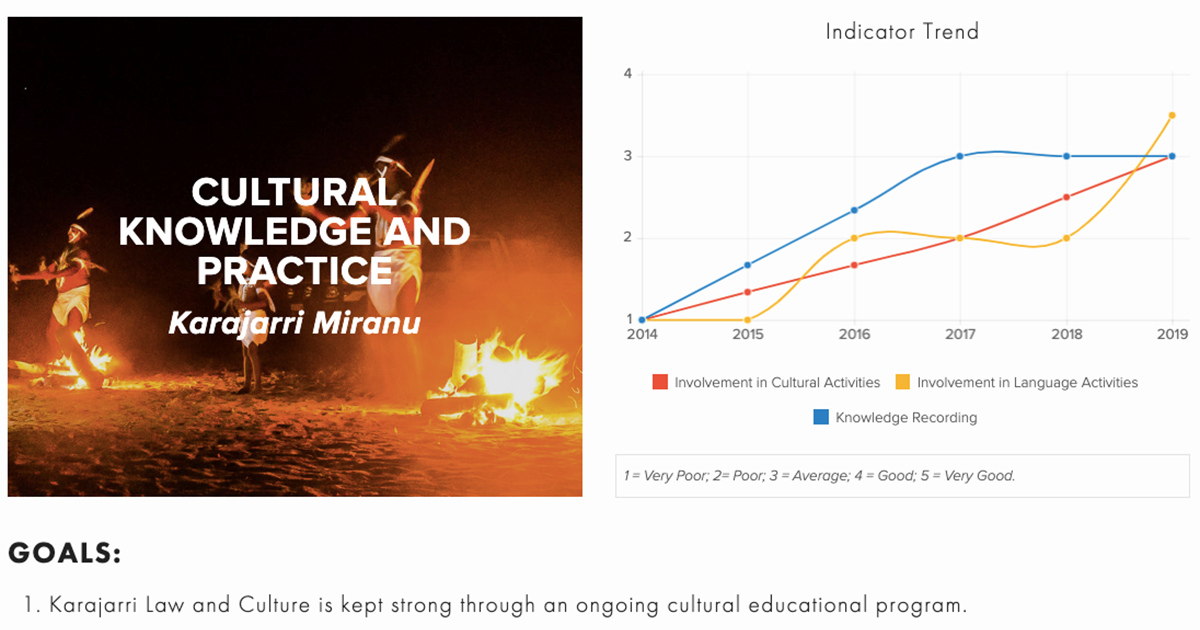ESS assists clients to develop and deliver their own monitoring, evaluation, reporting and improvement (MERI) programs. MERI programs are vital for land and cultural heritage management organisations (or projects) to understand how their work is aligned with their strategic directives, to identify the impact of their work on achieving their targets or goals, to communicate outcomes to stakeholders (including traditional owners), and to adapt their operations in light of what they have learned.
As on-ground coordinators, we work with clients to devise and deliver their MERI frameworks by formulating indicators, identifying data needs, establishing data standards, and devising appropriate monitoring methods. We provide training to ensure that groups have the capacity to deliver each aspect of the MERI programs during the project phase and into the future. This training includes a focus on data collection and specific monitoring techniques; data handling, management and analysis; indicator evaluation procedures; reporting methods; and the implementation of adaptive management principles.
As system implementation experts, we provide tailored technologies for collecting and managing the suite of data that is involved in MERI programs. This includes the implementation of customised information management systems and their integration with field data collection tools. The use of live dashboards to display curated information summaries related to the MERI program (such as monitoring data products, indicator evaluation outcomes, or key target condition) provide a powerful tool for clients to analyse and report on the impact of their work.
Overall, our role for MERI programs is to help clients understand and track the condition of what is important to them, which in turn enables them to tell their story and enhance the impact of their work.
Key features:
- Frameworks and systems that link monitoring and on-ground action with organisational/program goals and targets.
- Development of appropriate indicators that enable groups to monitor and measure performance against these goals and targets
- Implementation of monitoring methods and technologies to produce meaningful data through which evaluations can be made.
- Provision of dashboards and other reporting tools for communicating outcomes and performance to a variety of audiences, while also enhancing internal decision making.
Projects involving MERI systems:
Traditional Owner-led monitoring and reporting (Great Barrier Reef Foundation)
